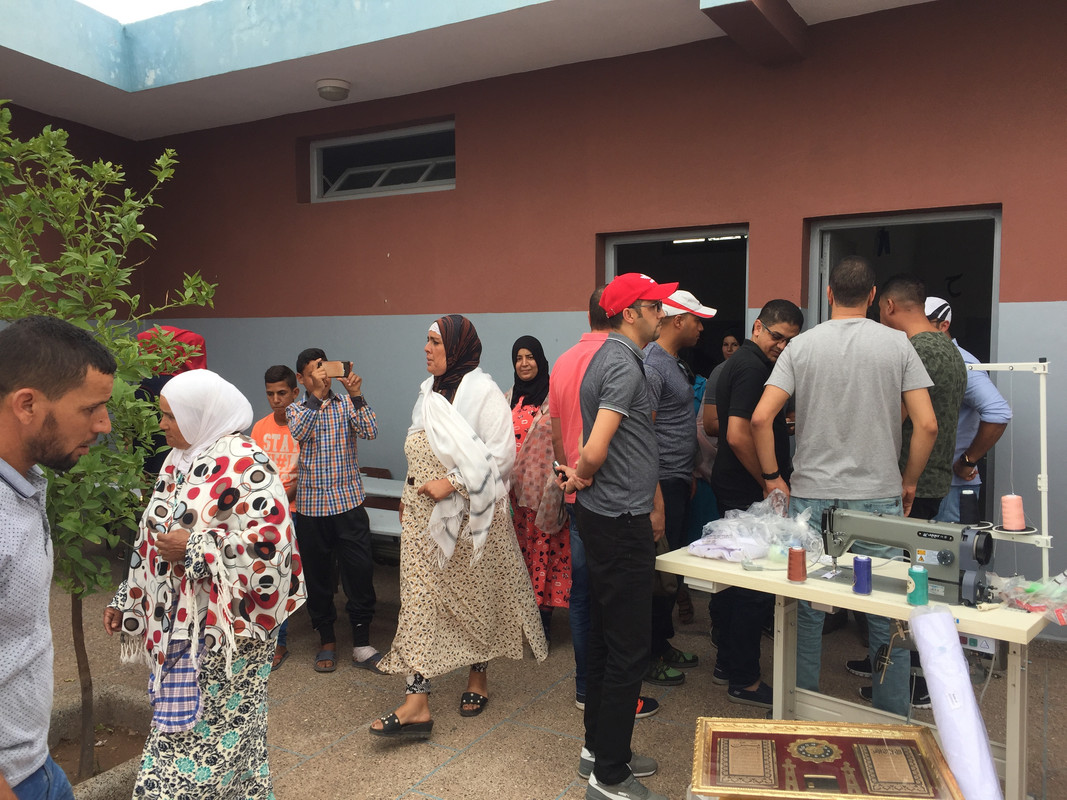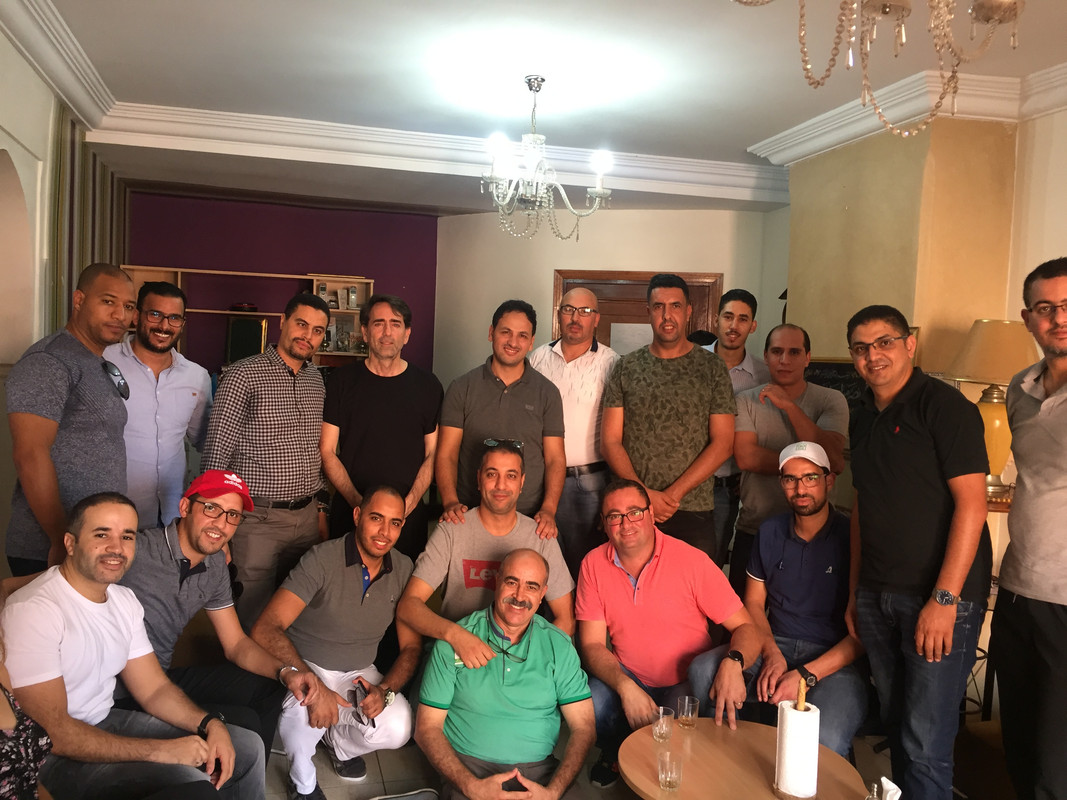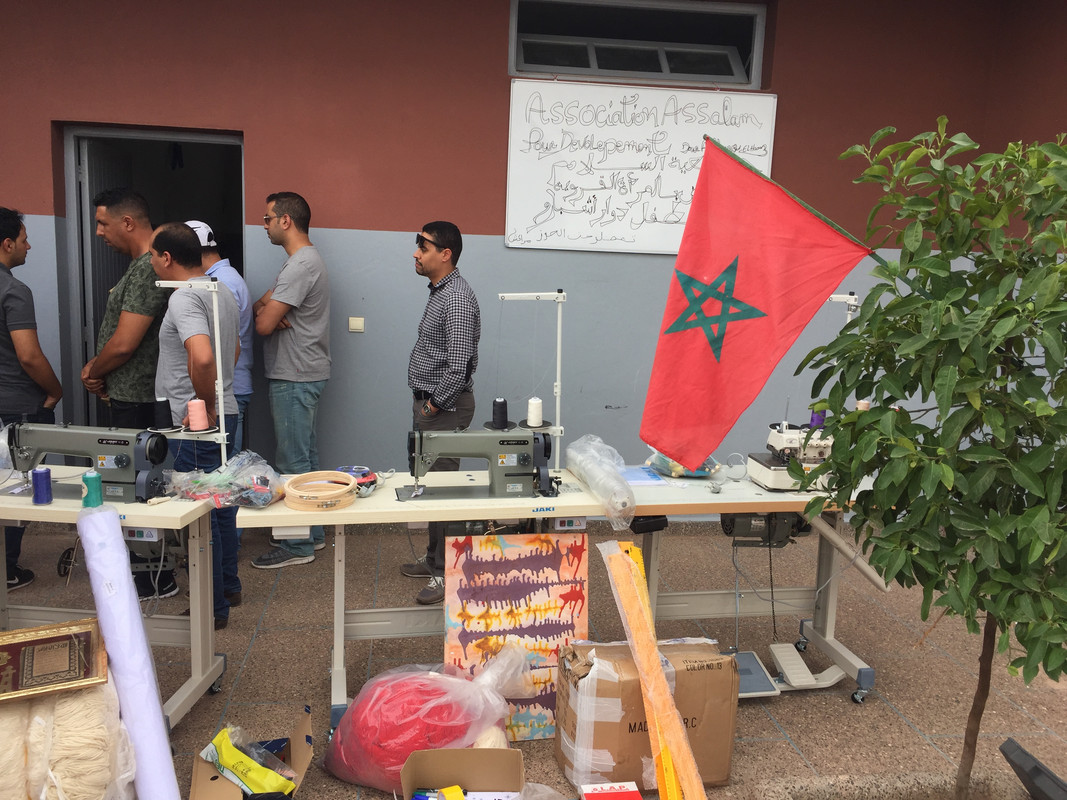 By Errachid Montassir
By Errachid Montassir
HAF Project manager
According to UNESCO, there are 10 million people who are illiterate and 1,137,546 youth who have not received a primary or secondary education. In Morocco, nearly 20,186 girls did not attend school in 2014, in contrast to 17,183 boys that same year.
Female youth are often deprived of a formal education. In 2014, 58.18% of Moroccan girls in rural areas did not go to school, opposed to 18.68% in urban areas (Eba Nguema). Lack of female attendance is attributed to the mentalities and traditions that favor boys’ education over that for girls’ as well as poor school infrastructure, which plays a major role in high dropout rates. Oftentimes, rural schools do not have accessible bathrooms and, as a result, female students are deterred from continuing their studies. In addition, work and early marriage is commonly forced upon young girls. Both poverty and ignorance lead parents to send their daughters to work as housemaids so they become a source of income, rather than a source of knowledge. These factors consequently endanger the education, health, and development of girls in Morocco.
Akrich is a rural village in Al-Haouz Province where HAF had previously implemented a successful sustainable project in which we facilitated the construction of a fruit tree nursery that now provides organic fruit trees to many regions in Morocco. Following this, HAF introduced “The Sewing Project” in collaboration with the OCP Foundation to address the ongoing problem of low attendance of girls in school. The Sewing Project is an exceptional idea that was identified by the Akrich community as a result of several participatory approach meetings, and after prioritizing their village’s needs. Specifically, they recognized that more than 30 girls could not continue their studies, and that those students have no alternative to build their capacities to achieve their goals in the future. Therefore, HAF and the OCP Foundation committed to creating a special opportunity: through an agreement that urges the provisions of sewing machines, equipment, and materials, this start up project also provides crucial trainings related to women’s empowerment, team building, and skill enhancement for the girls.
On Saturday, October 7, 2018 at 9:00 AM, HAF President Dr. Yossef Ben-Meir met with 16 volunteers from the OCP Foundation. Before spending the day on a field visit that I led, the volunteers learned about the participatory approach during a brief presentation delivered by Dr. Ben-Meir. The meeting served as a good opportunity to strengthen the relationship between HAF and the OCP Foundation, and to open doors to collaboration on future development projects with our communities.

The volunteers and I then headed to Achbaro, another village in the Al-Haouz province. Everyone was extremely excited to meet the community and talk to them. We arrived at 11:20 AM and walked to a women’s center where we met Ms. Lbatoul, the president of a local cooperative, as well as her team of 30 women cooperative members, seven men who helped organize the meeting, and 16 children. They warmly welcomed us with breakfast prepared by the girls in the center, after which we had the chance to learn more about the cooperative and its members. The girls spoke of their ideas for the future as well as their current experiences working. Siham, one of the members said, “I cannot believe that I’m able to work and participate in the trainings when I left school after 6th grade, in primary school. I thank you all so much.” Mr. Said El Darfouli, one of the OCP Foundation volunteers replied, “We are happy to be here and meet you all. This is just a startup, and we are thankful to Ms. Lbatoul for having us. We are also grateful to the High Atlas Foundation for this enduring collaboration.”
After discussions, an expert installed sewing machines and conducted a training workshop for the girls. He taught them about the methods and steps of sewing. While the women were learning, OCP volunteers kept the children busy by playing educational environmental games with them.

It was wonderful to meet the community and was also a remarkable day with the volunteers from the OCP Foundation leaded by Mr. Sefouar Noureddine. From this experience, I gained insight into the positive impacts of project collaboration. By working with likeminded partners, many successful initiatives could be implemented in our communities in Morocco. HAF and the OCP Foundation will continue working together to achieve several future development projects and, thus, a social transformation that will alter the lives of the women, men, and youth in Morocco.




 By Errachid Montassir
By Errachid Montassir

